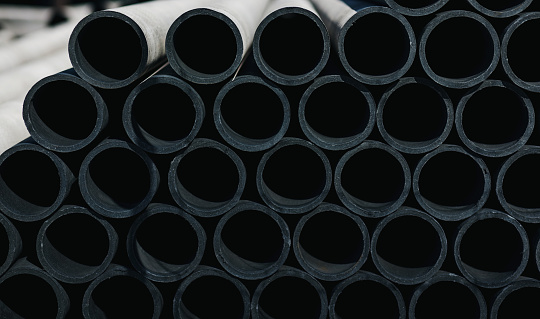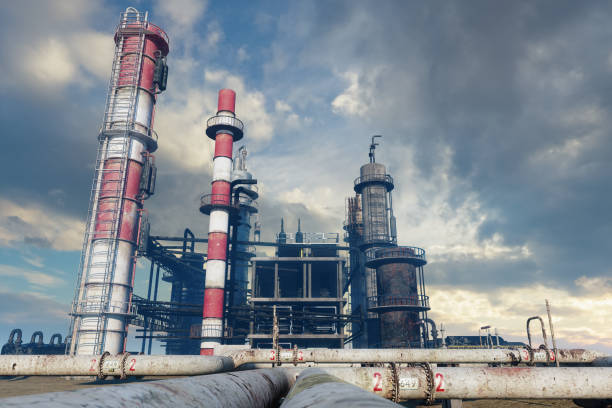
Carbon steel pipes are manufactured using a variety of techniques that result in a pipe with a variety of characteristics. Carbon content in carbon steel pipe can reach up to 2.1 percent of the total alloy weight. An increment in the carbon percentage in the alloy contributes to the metal’s tensile strength and hardness. Even with a higher percentage of carbon, the black carbon steel jacketed pipe would lose its ductility.
Carbon Steel Flanges are made from various carbon steel grades. DIN (2533 and other subspecies), MSS SP-44, ASTM A105N, and ASTM A694 are all common standards. They go with pressure ratings ranging from 150 to 2500 in imperial and PN10 to PN40 in metric. Carbon steel is a type of steel that stores 2.1 percent carbon by weight. Carbon steel is defined by AISI as:
- Mn maximum 1.65 percent, Si 0.06 percent
- The specified minimum Cu content shall not exceed 0.04 percent.
- For Cr, Mo, Ni, Ti, Va, and other metals, no alloy element (minimum content) is required.

After heat treatment, the steel becomes stronger and sturdier as the carbon element content increases. Instead, it becomes less ductile, which may be advantageous in your application. If a high amount of carbon is added without heat treatment, it will reduce weldability. If not used as stainless steel, carbon steel may contain alloy steel. You can learn more on carbon steel fittings malaysia here.
Specifications of carbon steel fittings
Carbon steel pipes are available in various sizes ranging from 12″ NB to 48″ NB. Carbon steel pipes are manufactured in accordance with several standards, including ASTM A/ASME SA 333 Grade 1,6; API 5L – PSL 1 Gr. A, B, X42, X46, X52, X56, X60, X65, X70; ASTM A/ASME SA 53 Grade A, B; and ASTM A/ASME SA 106 Grade A, B, C.
The thickness of carbon steel pipes determines the design. The range begins with SCH 40, SCH 80, SCH 160, and so on. General Engineering, Pressure Vessels, Sugar, Steel, Boiler Equipment, Petrochemicals, Oil Refineries, and Power Generation (Thermal/Nuclear) are some of the industries that use CS pipes. For many years, most carbon steel pipes have been made from Grade B steel, which has a minimum yield strength of 35,000 psi.
Types of carbon steel pipes

- Carbon steel ERW pipe
- They have features such as intricate detailing, precision engineering, adequately structured, corrosion resistance, lightweight, and cost-effectiveness, among others. General and heavy engineering, transmission towers, coal and mining, oil and petrochemicals, boilers and pressure vessels, automobiles, and shipbuilding all use ERW pipes.
- Carbon steel welded pipe
- The pipes are useful in high-pressure situations. Carbon steel pipes are used in a variety of industries, including waste and water transportation, chemical manufacturing, high-pressure applications, and the oil and gas industries.
- Carbon steel fabricated pipe
- They have high tensile strength, corrosion resistance, and durability. Carbon steel pipes are useful in a variety of industries. The industries include the following: desalination, ships, food, pulp and paper, energy, metallurgical, oil and gas, and chemical industries.